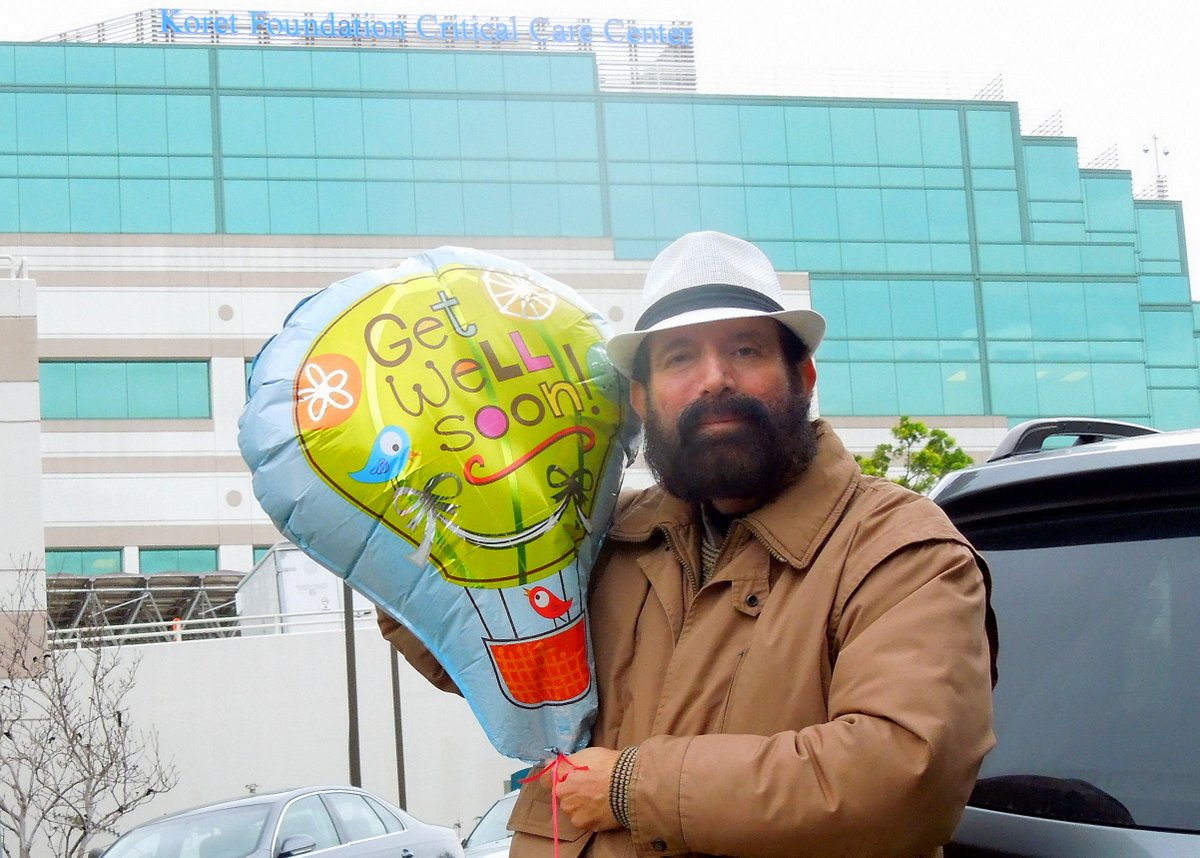
By Howard Dyckoff
She carries needles and tubes, held in slender fingers. She’s looking for human blood. I see earrings, and under her white jacket, jewelry, a sequined top. I catch a honeysuckle scent. Leather heels. She clearly has a life outside of all this bloodsucking.
I remember the extraordinary efforts my nurse had to go through in the long hours of my slow discharge process because the doctor signing the discharge order had prescribed the wrong pain killers.
Although I wore a red tag on my wrist to indicate I had medical allergies, and stated my allergies out loud to my doctors and nurses every day, one script prescribed the a pain killer that I was allergic to. The busy doctor actually wrote the script in another part of the hospital, and so did not see my wrist band. But the allergy was printed on the prescription form the doctor filled out. Obviously someone was very tired at the end of the day.
Highland Hospital has a discharge pharmacy just for patients being released from the hospital. This is a god-send that reduces what could be am hour-long wait to only 5 or 10 minutes. But it closes at 7 pm. I received to signed prescription at 6:45 pm.
My wife filled the prescription I was allergic to as soon as the discharge order and script came in. When she brought the meds back, I saw the error and contacted my nurse who then spent almost 2 hours trying to get the attention of the doctor who signed my discharge and the erroneous script. My nurse did not have the authority to adjust the script and also could not discharge me without the correct medications. We were entirely in limbo.
I checked with my nurse several times and each time I was told the doctor had said they would come by in 10 or 15 minutes. And 2 hours later, the doctor did show, somewhat apologetically. She looked over my chart, nodded when I said that my allergy was prominent in the chart and in the binder they kept on me, then apologized again. We finally got a correct script, but the discharge pharmacy had been closed for almost two hours. That meant my wife had to go back to Highland in the morning to get the correct pain killer and also I was uncomfortable for several extra hours.
I recognize that part of the problem was that only one member of my team of doctors was actually on duty after 5 pm that evening and there were no other doctors from the team who might have had less work and could be contacted about the problem. I was ready for discharge and was no longer a high priority patient. Still, the system had trouble correcting my problem and discharging me in a timely and efficient manner.
I certainly did not need to be assigned to a bed after 6 pm and did not meed to be in pain the next morning. But staying over another day – something neither I nor the hospital wanted – would have taken less effort. This needs a fix.
Howard Dyckoff has lived in Oakland for over 40 years and has been involved with many community groups, including Oakland Digital and Oakland Local, Block by Block, the East Oakland Boxing Association (EOBA), and CBE. A Brooklyn, New York, transplant, and an Aerospace Engineering graduate of NY Polytechnic, Howard also attended Laney College, where he wrote for the Laney Tower newspaper and was elected editor. Howard also attended the Starr King School at the Theological Union in Berkeley.
He has served as the Berkeley Free Clinic’s Outreach Coordinator, and also worked as an information technology professional at Chevron, Sybase, and Wells Fargo. He worked in both the 2010 and 2020 Census. Howard has been a regular contributor to Oakland Local and online publications such as TechTarget and Linux Gazette and currently writes for Oakland Voices. He currently does event photography and portraiture around the Bay Area.

Be the first to comment